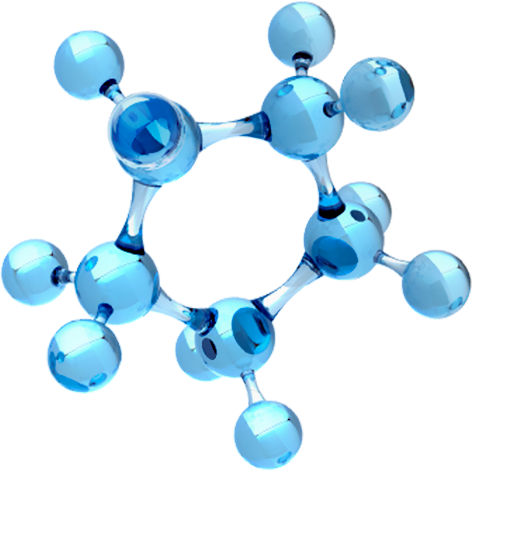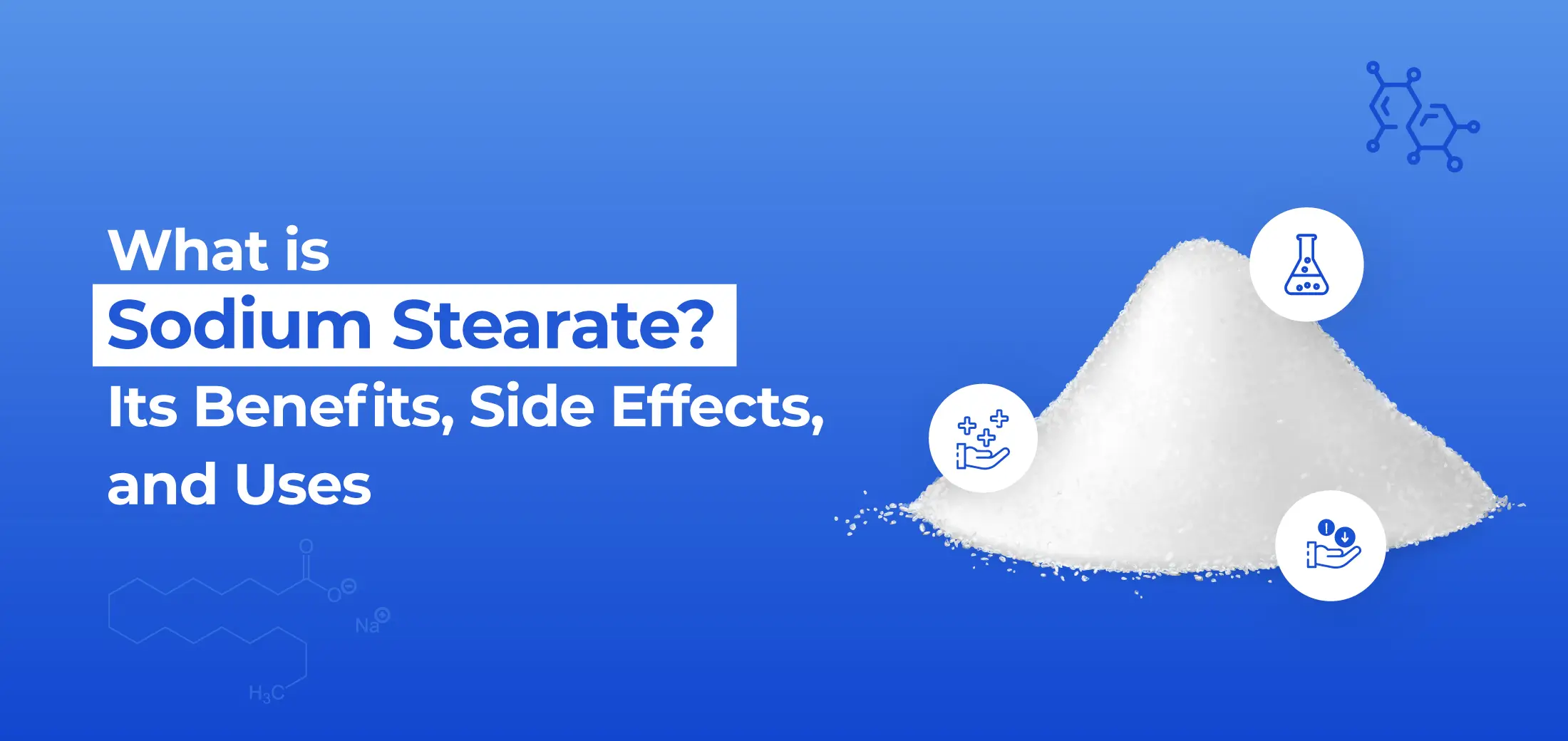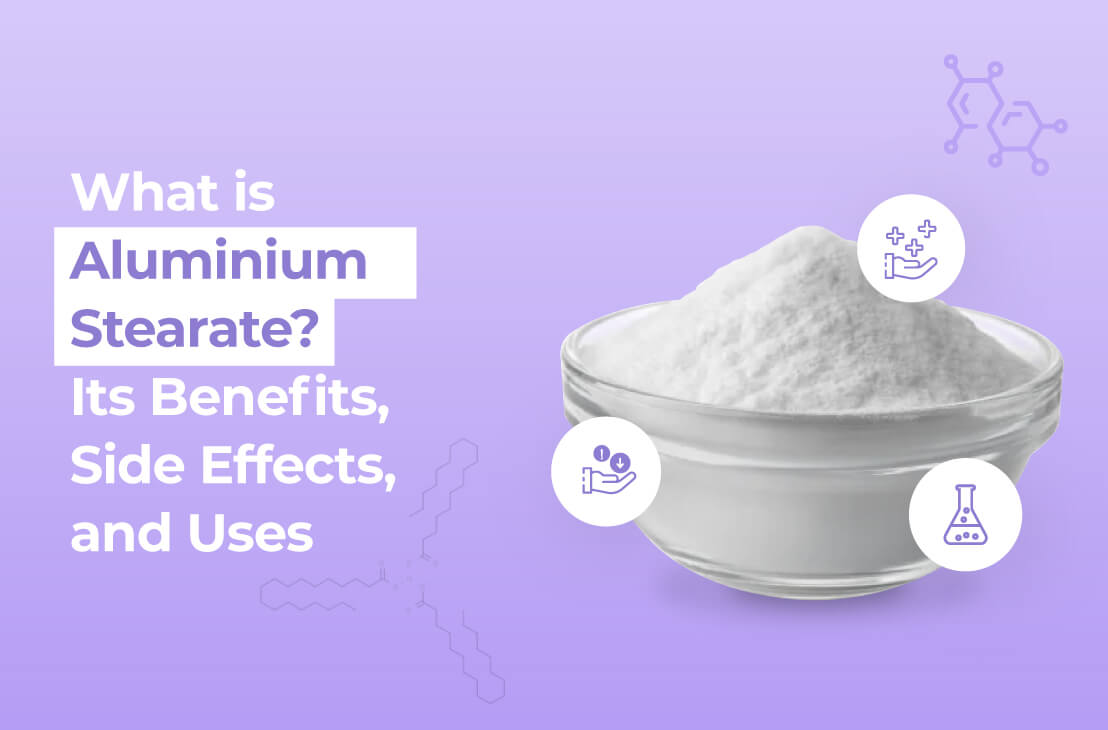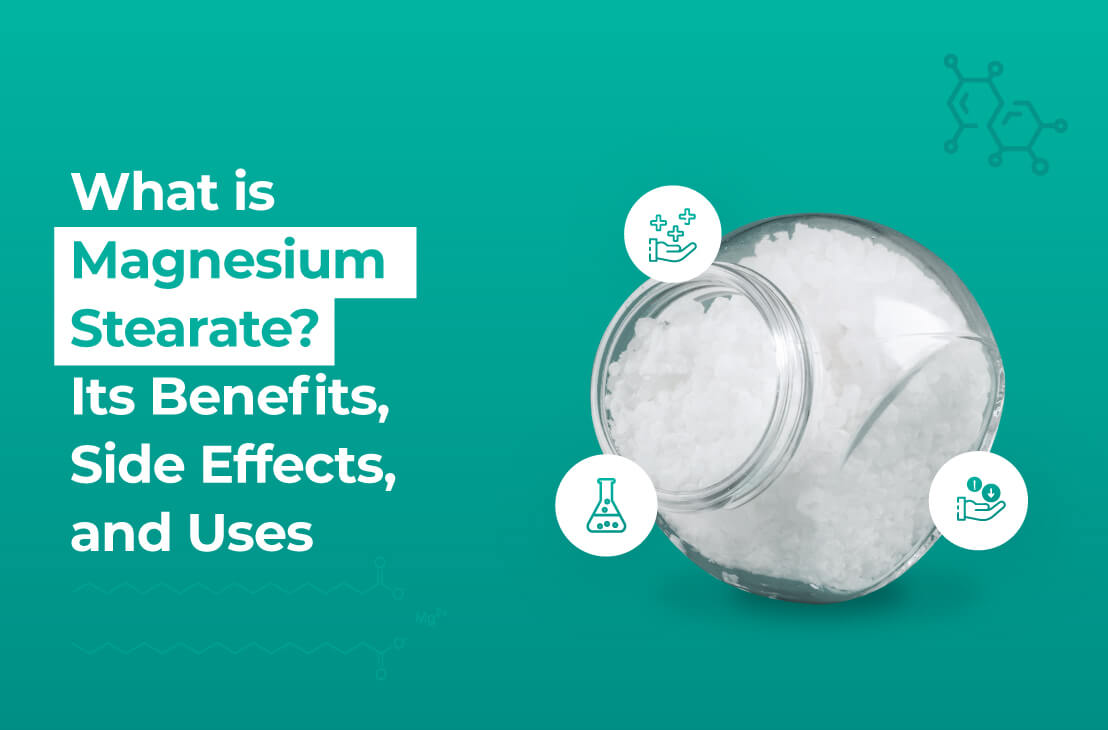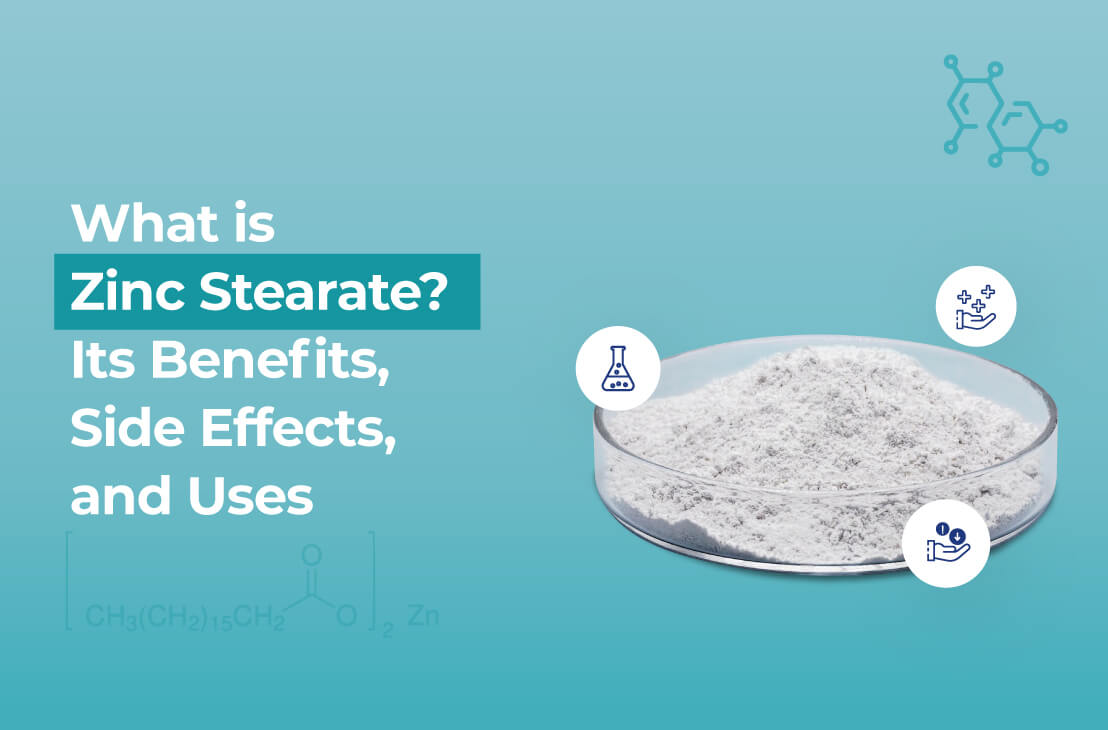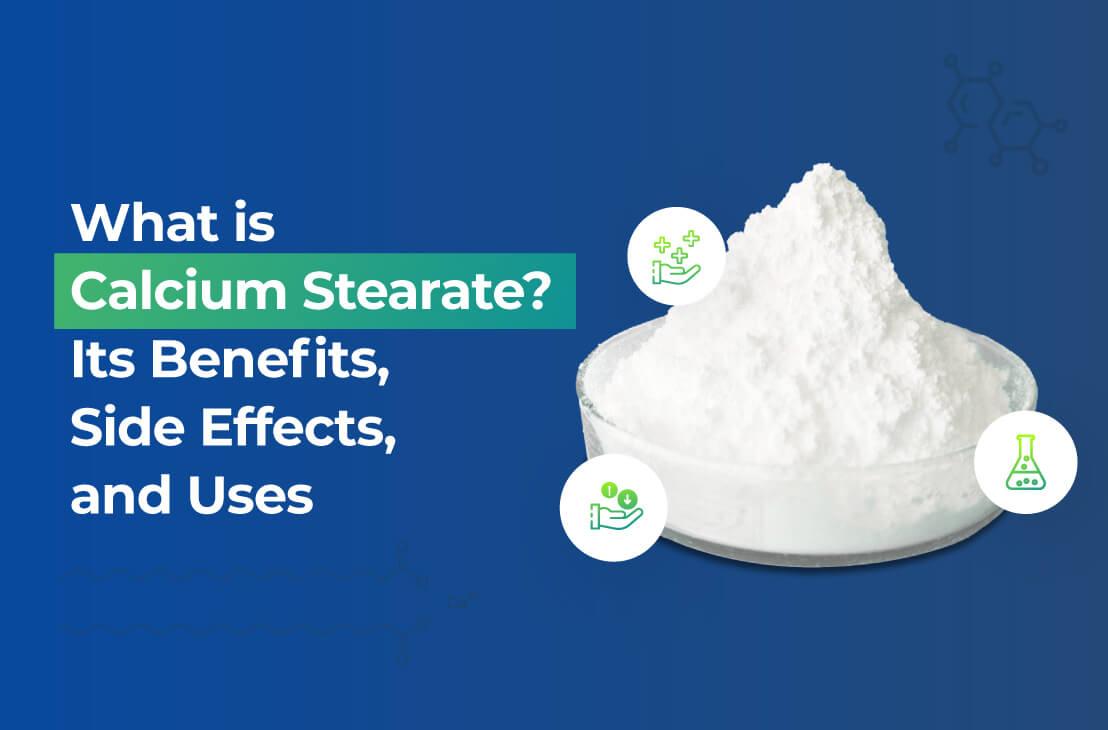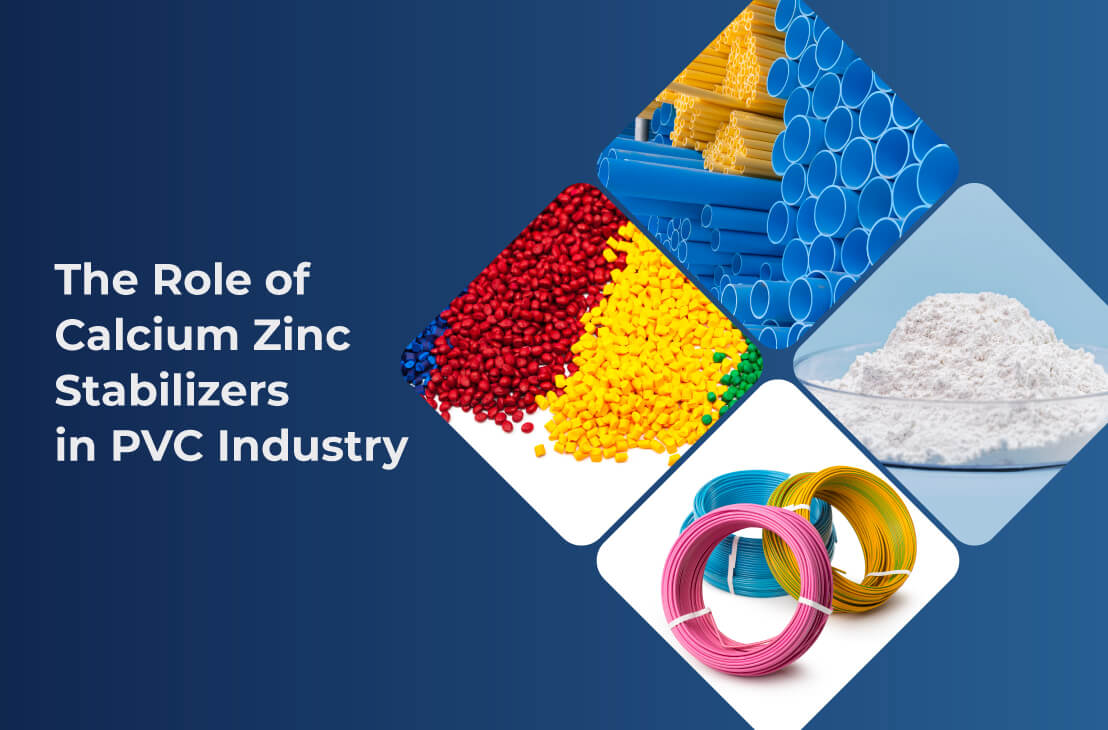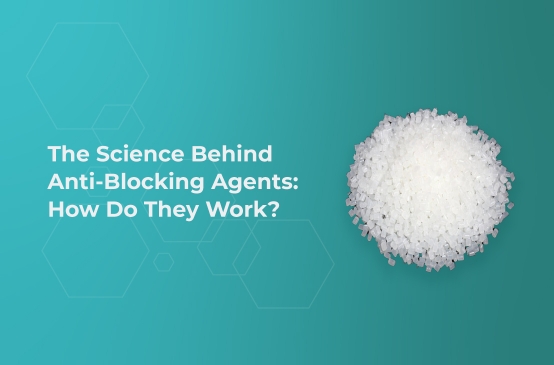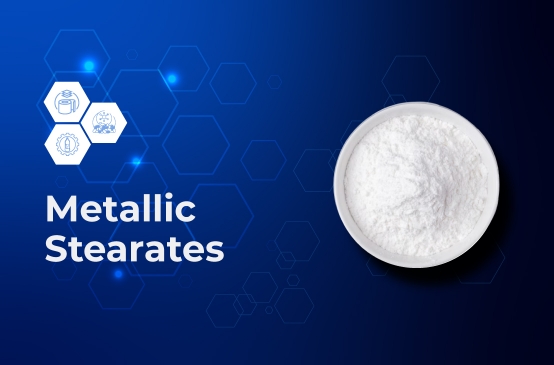In the world of chemical compounds, sodium stearate might not be a well-known term, but it is a common ingredient in many known products. A salt of stearic acid, sodium stearate is important to numerous industries, but pharmaceutical and cosmetic ones come at the top. In this blog post, we'll examine the complexities of sodium stearate, including its many applications, potential risks, and benefits.
What is Sodium Stearate?
The sodium salt that is made from stearic acid, a saturated fatty acid present in a wide variety of plant and animal lipids, is called sodium stearate. It is extensively utilized in the production of numerous items as an emulsifier and stabilizer. It's a white powder with no smell.
Benefits of Sodium Stearate
-
Emulsifying Agent
Because of its well-known emulsifying properties, sodium stearate is frequently utilized as an ingredient in the production of cosmetics and personal hygiene products. It combines ingredients with an oil or water basis to enhance the homogeneity and even smoothness of creams, lotions, and other emulsions.
-
Pharmaceutical Stabiliser
Sodium stearate is used by the pharmaceutical industry to stabilize medicinal formulations. It is an essential component in the making of tablets and capsules because it can extend the shelf life and uniformity of pharmaceutical products.
-
Cleaning Agent
Sodium stearate is frequently found in cleaning product recipes. It works brilliantly as an ingredient in many household cleaners, helping to dissolve and remove grime and oil due to its soap-like qualities.
-
Waterproofing Agent
Sodium stearate is utilized to make waterproofing compounds for papers, textiles, and even some kinds of paint due to its hydrophobic properties. After this application, the materials are more water resistant and have a longer lifespan.
-
Food Additive
To stabilize and thicken a range of food items, the food industry uses sodium stearate. In a variety of recipes, it improves texture and prevents ingredients from separating.
Side Effects of Sodium Stearate
Although it is generally accepted that sodium stearate is safe to use in a range of goods, it is still vital to be aware of any potential risks, especially for individuals who may be allergic to certain compounds or have sensitivities. Among the items to consider are:
-
Skin Sensitivity
For some persons, products containing sodium stearate may irritate or trigger allergies on their skin. Before using any cosmetics or personal hygiene items that include this ingredient, do a patch test.
-
Fears Related to Inhalation
Inhaling powdered sodium stearate can be hazardous. It is essential that it be handled carefully and with the appropriate safety gear, especially in work environments.
-
Dietary Considerations
Although smaller quantities of sodium stearate are typically thought to be safe, excessive ingestion should be avoided. The use of any food additive ought to be restricted.
Uses of Sodium Stearate
The term "sodium stearate" is not frequently used, despite the fact that it affects numerous industries. Among other industries, this material provides a lot of benefits in the medical and cosmetics sectors. Products containing sodium stearate should be used carefully, and any potential negative effects should be understood. In the production and product development fields, sodium stearate is a helpful and adaptable actor as we continue to investigate and comprehend the universe of chemical compounds.


